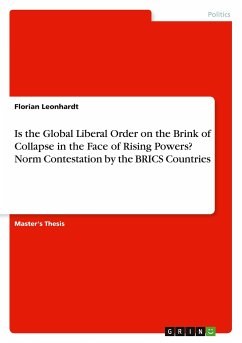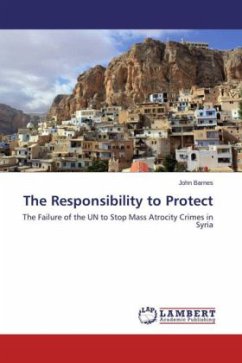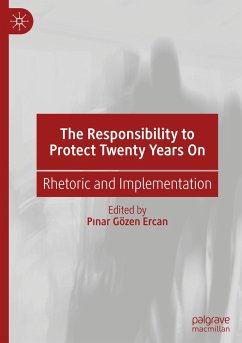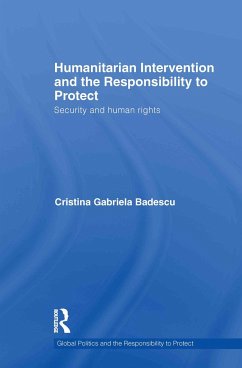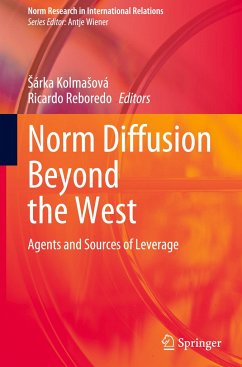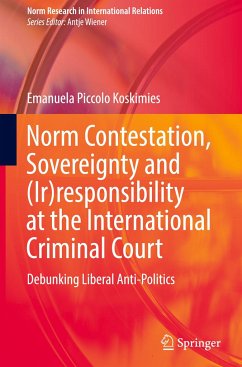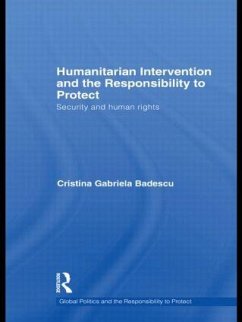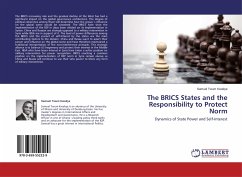
The BRICS States and the Responsibility to Protect Norm
Dynamics of State Power and Self-Interest
Versandkostenfrei!
Versandfertig in 6-10 Tagen
27,99 €
inkl. MwSt.

PAYBACK Punkte
14 °P sammeln!
The BRICS increasing role and the gradual decline of the West has had a significant impact on the global governance architecture. The degree of political coherence among them will determine how the group s influence on the global scene would be sustained. The BRICS have since the implementation of the R2P in Libya been divided on its implementation in Syrian. China and Russian are strongly opposed to a military intervention in Syria while IBSA are in support of it. The level of power differences among the BRICS and the pursuit of self-interest by the states are the main contributing factors to...
The BRICS increasing role and the gradual decline of the West has had a significant impact on the global governance architecture. The degree of political coherence among them will determine how the group s influence on the global scene would be sustained. The BRICS have since the implementation of the R2P in Libya been divided on its implementation in Syrian. China and Russian are strongly opposed to a military intervention in Syria while IBSA are in support of it. The level of power differences among the BRICS and the pursuit of self-interest by the states are the main contributing factors to the division. China and Russia want to assert their power and influence on the global scene and have therefore maintained a traditional interpretation of the non-interference principle. This strategic alliance is to balance US hegemony and protect their interest in the Middle East. IBSA who have lesser interest in Syria have taken a softer position on military intervention for power recognition. BRICS reaching a common position on the implementation of R2P norm in Syria remain elusive as China and Russia will continue to use their veto power to block any form of military intervention.





